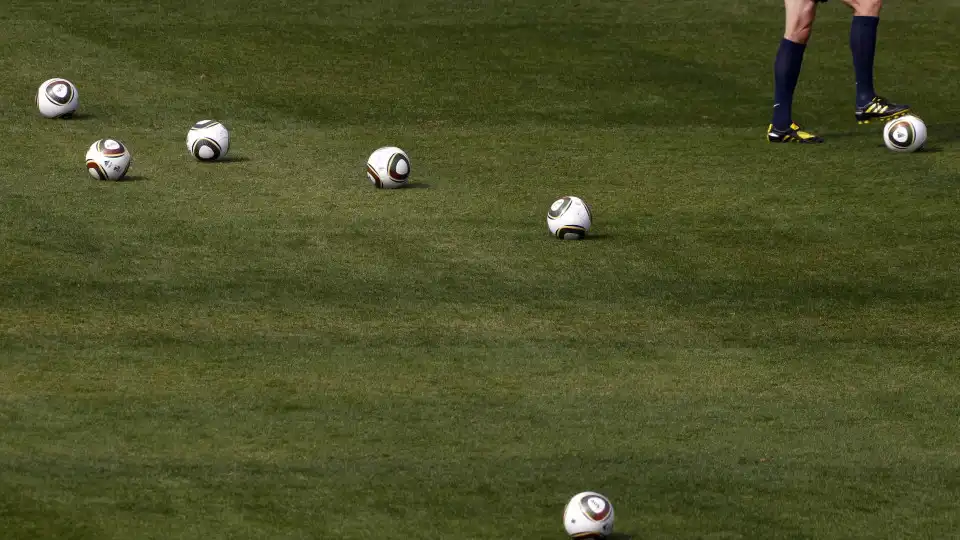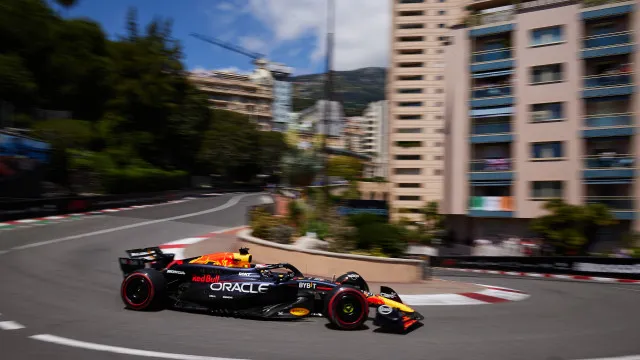April 25: National team in counter-cycle with clubs in full revolution
The Portuguese national football team evolved in counter-cycle with the national clubs and went unnoticed by the socio-political turmoil of 25 April 1974, discrediting itself in public opinion with power struggles and discreet results.

© Reuters
Far from the final stage of the 1974 World Cup, held in then West Germany, Portugal played three matches that year and lined up for the last time in the pre-democratic period on April 3rd, in a friendly against England (0-0), at the old Estádio da Luz, in Lisbon.
The Portuguese would return to action with a defeat in Switzerland (0-3), on November 13th, more than six months after the fall of the Estado Novo and a week before the debut in Group 1 of the qualifying phase for Euro1976, with an iconic night of goalkeeper Vítor Damas imposing an unprecedented draw in official matches with the English at Wembley (0-0).
Ricardo Serrado characterizes a "rejuvenating team", which had just lost Eusébio, António Simões or José Torres, the last 'resistors' of the third place achieved in the 1966 World Cup, after a defeat against the host England in the semi-finals.
"It is no coincidence that the press of the time speaks of a deep sense of decadence from the 1970s. It was realized that this very strong generation had ended and that it would be necessary to replace it", he pointed out, about the appearance of a group of young internationals, decentralized from the big clubs and without representatives from the former African colonies.
After having cemented Vitória de Setúbal with regular podium appearances in the I Liga and above-average European performances, José Maria Pedroto succeeded the 'skinny' José Augusto as coach, but Portugal was irregular after the 'zero' at Wembley and would miss access to Euro1976, being two points behind the future champion Czechoslovakia.
"European countries were growing in terms of professionalism and training and playing conditions, but Portuguese football was a little bit behind for several reasons and this was evident at the level of clubs and the national team", he observed, in view of the level dictated in the previous decade by Benfica, with two victories in five finals of the European Champion Clubs' Cup, in 1960/61 and 1961/62, and Sporting, winner of the Cup Winners' Cup, in 1963/64.
If Pedroto still reconciled spells at Boavista and FC Porto until he left the national team in 1976, the club conflicts between north and south made the 'quinas' team a "minefield", with rare conversations between footballers from the three 'big ones'.
"When we look at that generation of the 1970s, we easily remember António Oliveira, Chalana and João Alves. If, as a historian, I had to say off the top of my head 10 of the most skilled players in the history of Portuguese football, they would come to mind immediately. With technique, there was a lack of organization and competitiveness", noted Ricardo Serrado.
After having failed consecutively in eight qualifications for final stages since 1966, Portugal interrupted this 18-year hiatus in 1984, evolving to the 'semis' of the European Championship, in France, followed by the fall in the first phase of the 1986 World Cup, in Mexico.
The country's greater openness to the outside world had already begun to make it possible in the late 1970s for references from the I Liga to leave for elite European championships, such as Humberto Coelho (Paris Saint-Germain), João Alves (Salamanca and PSG), Jordão (Zaragoza), Vítor Damas (Racing Santander), António Oliveira (Betis) and Fernando Gomes (Sporting Gijón).
"With the exception of João Alves, who left his mark on the Spanish League, it was rare for those who succeeded in another country, as the conditions, demands and professionalism were much higher abroad", he stressed, seeing the national team as a stage for struggles for the professional status of players and coaches, which revitalized the clubs in the following decades.
If Benfica has lost five European finals since then, FC Porto has won seven out of 11 possible, achieving a European Champions Cup, a Champions League, a UEFA Cup, a Europa League, a European Super Cup and two Intercontinental Cups.
The Portuguese Football Federation (FPF) "only gained greater stability" with the presidential election of Gilberto Madaíl in 1996 and has never missed a final stage since 2000, reaching its peak with the unprecedented successes in Euro2016 and the 2019 Nations League.




Descarregue a nossa App gratuita.
Oitavo ano consecutivo Escolha do Consumidor para Imprensa Online e eleito o produto do ano 2024.
* Estudo da e Netsonda, nov. e dez. 2023 produtodoano- pt.com

Descarregue a nossa App gratuita.
Oitavo ano consecutivo Escolha do Consumidor para Imprensa Online e eleito o produto do ano 2024.
* Estudo da e Netsonda, nov. e dez. 2023 produtodoano- pt.com
Recomendados para si
Classificados Auto
Leia Também










Últimas Notícias












| Clube | J | PTS | |||
|---|---|---|---|---|---|
| 1 | Sporting | 11 | 33 | ||
| 2 | FC Porto | 11 | 27 | ||
| 3 | Benfica | 10 | 25 | ||
| 4 | Santa Clara | 11 | 21 | ||
| 5 | Sp. Braga | 11 | 20 | ||
| 6 | Vitória SC | 11 | 18 | ||
| 7 | Famalicão | 11 | 17 | ||
| 8 | Moreirense | 11 | 17 | ||
| 9 | Casa Pia | 11 | 13 | ||
| 10 | Rio Ave | 11 | 12 | ||
| 11 | Gil Vicente | 11 | 10 | ||
| 12 | Estoril | 11 | 10 | ||
| 13 | AVS | 11 | 10 | ||
| 14 | Boavista | 11 | 9 | ||
| 15 | Estrela | 11 | 9 | ||
| 16 | Arouca | 11 | 8 | ||
| 17 | C.D. Nacional | 10 | 8 | ||
| 18 | Farense | 11 | 5 |
| Clube | J | PTS | |||
|---|---|---|---|---|---|
| 1 | Barcelona | 13 | 33 | ||
| 2 | Real Madrid | 12 | 27 | ||
| 3 | Atlético Madrid | 13 | 26 | ||
| 4 | Villarreal | 12 | 24 | ||
| 5 | Osasuna | 13 | 21 | ||
| 6 | Athletic Club | 13 | 20 | ||
| 7 | Real Betis | 13 | 20 | ||
| 8 | Real Sociedad | 13 | 18 | ||
| 9 | Mallorca | 13 | 18 | ||
| 10 | Girona | 13 | 18 | ||
| 11 | Celta Vigo | 13 | 17 | ||
| 12 | Rayo Vallecano | 12 | 16 | ||
| 13 | Sevilla | 13 | 15 | ||
| 14 | Leganés | 13 | 14 | ||
| 15 | Alavés | 13 | 13 | ||
| 16 | Las Palmas | 13 | 12 | ||
| 17 | Getafe | 13 | 10 | ||
| 18 | Espanyol | 12 | 10 | ||
| 19 | Real Valladolid | 13 | 9 | ||
| 20 | Valencia | 11 | 7 |
| Clube | J | PTS | |||
|---|---|---|---|---|---|
| 1 | Liverpool | 11 | 28 | ||
| 2 | Manchester City | 11 | 23 | ||
| 3 | Chelsea | 11 | 19 | ||
| 4 | Arsenal | 11 | 19 | ||
| 5 | Nottingham Forest | 11 | 19 | ||
| 6 | Brighton & Hove Albion | 11 | 19 | ||
| 7 | Fulham | 11 | 18 | ||
| 8 | Newcastle United | 11 | 18 | ||
| 9 | Aston Villa | 11 | 18 | ||
| 10 | Tottenham Hotspur | 11 | 16 | ||
| 11 | Brentford | 11 | 16 | ||
| 12 | AFC Bournemouth | 11 | 15 | ||
| 13 | Manchester United | 11 | 15 | ||
| 14 | West Ham United | 11 | 12 | ||
| 15 | Leicester City | 11 | 10 | ||
| 16 | Everton | 11 | 10 | ||
| 17 | Ipswich Town | 11 | 8 | ||
| 18 | Crystal Palace | 11 | 7 | ||
| 19 | Wolverhampton Wanderers | 11 | 6 | ||
| 20 | Southampton | 11 | 4 |
| Clube | J | PTS | |||
|---|---|---|---|---|---|
| 1 | Napoli | 12 | 26 | ||
| 2 | Atalanta | 12 | 25 | ||
| 3 | Fiorentina | 12 | 25 | ||
| 4 | Internazionale | 12 | 25 | ||
| 5 | Lazio | 12 | 25 | ||
| 6 | Juventus | 12 | 24 | ||
| 7 | AC Milan | 11 | 18 | ||
| 8 | Bologna | 11 | 18 | ||
| 9 | Udinese | 12 | 16 | ||
| 10 | Empoli | 12 | 15 | ||
| 11 | Torino | 12 | 14 | ||
| 12 | AS Roma | 12 | 13 | ||
| 13 | Parma | 12 | 12 | ||
| 14 | Hellas Verona | 12 | 12 | ||
| 15 | Como | 12 | 10 | ||
| 16 | Cagliari | 12 | 10 | ||
| 17 | Genoa | 12 | 10 | ||
| 18 | Lecce | 12 | 9 | ||
| 19 | Monza | 12 | 8 | ||
| 20 | Venezia | 12 | 8 |
|
Liga Campeões
|
Liga Europa
|
Despromoção
|
|---|
| Jogador | Golos | ||||
|---|---|---|---|---|---|
| 1 | Viktor Gyokeres | 16 | |||
| 2 | Samu | 8 | |||
| 3 | Wenderson Galeno | 8 | |||
| 4 | Aktürkoglu | 5 | |||
| 5 | Kanya Fujimoto | 5 | |||
| 6 | Clayton | 5 | |||
| 7 | Cassiano | 4 | |||
| 8 | Amine El Ouazzani | 4 | |||
| 9 | Pote | 4 | |||
| 10 | Luís Nlavo | 4 |
| Jogador | Golos | ||||
|---|---|---|---|---|---|
| 1 | Robert Lewandowski | 14 | |||
| 2 | Vinícius Júnior | 8 | |||
| 3 | Ayoze Perez | 7 | |||
| 4 | Arnaut Danjuma Groeneveld | 2 | |||
| 5 | Raphael Dias Belloli | 7 | |||
| 6 | Ante Budimir | 6 | |||
| 7 | Kylian Mbappe Lottin | 6 | |||
| 8 | Daniel Olmo Carvajal | 5 | |||
| 9 | Giovani Lo Celso | 5 | |||
| 10 | Lamine Yamal | 5 |
| Jogador | Golos | ||||
|---|---|---|---|---|---|
| 1 | Erling Braut Haland | 12 | |||
| 2 | Chris Wood | 8 | |||
| 3 | Mohamed Salah | 8 | |||
| 4 | Bryan Mbeumo | 8 | |||
| 5 | Yoane Wissa | 7 | |||
| 6 | Cole Palmer | 7 | |||
| 7 | Liam Delap | 6 | |||
| 8 | Nicolas Jackson | 6 | |||
| 9 | Danny Welbeck | 6 | |||
| 10 | Luis Díaz | 5 |
| Jogador | Golos | ||||
|---|---|---|---|---|---|
| 1 | Mateo Retegui | 11 | |||
| 2 | Moise Kean | 8 | |||
| 3 | Marcus Thuram | 7 | |||
| 4 | Ademola Lookman | 6 | |||
| 5 | Dusan Vlahovic | 6 | |||
| 6 | Riccardo Orsolini | 5 | |||
| 7 | Christian Pulisic | 5 | |||
| 8 | Khvicha Kvaratskhelia | 5 | |||
| 9 | Valentín Castellanos | 5 | |||
| 10 | Lautaro Martínez | 5 |
Newsletter
Receba os principais destaques todos os dias no seu email.
Mais lidas
- Última hora
- Dia
- Semana
-
1
desporto Mercado de Transferências
'Bomba' na Alemanha. Xabi Alonso e Grimaldo vão deixar o Bayer Leverkusen
-
2
-
3
desporto Inglaterra
UEFA investiga VAR do Portugal-França apanhado a snifar pó branco
-
4
desporto Mercado de Transferências
Deco revela por que razão o Barcelona não quer contratar Diogo Costa
-
5
-
6
desporto Bayern Munique
João Palhinha dispensado da seleção nacional, anuncia o Bayern Munique
-
7
desporto Premier League
A resposta de Amorim que deixou funcionário do United a rir à gargalhada
-
8
desporto Análise
Tapa-se um problema, destapa-se outro. Benfica 'treme' à direita
-
9
desporto Óbito
-
10
desporto Liga das Nações
Poucos bilhetes e segurança máxima. França-Israel deixa Paris em alerta


Newsletter
Seja o primeiro a saber
Receba os principais destaques todos os dias no seu email.
© 2024 Notícias ao Minuto. Todos os direitos reservados
- Estatuto editorial
- Propriedade intelectual
- Política de privacidade
- Termos & condições
- Ficha técnica
- Contactos
- Equipa












